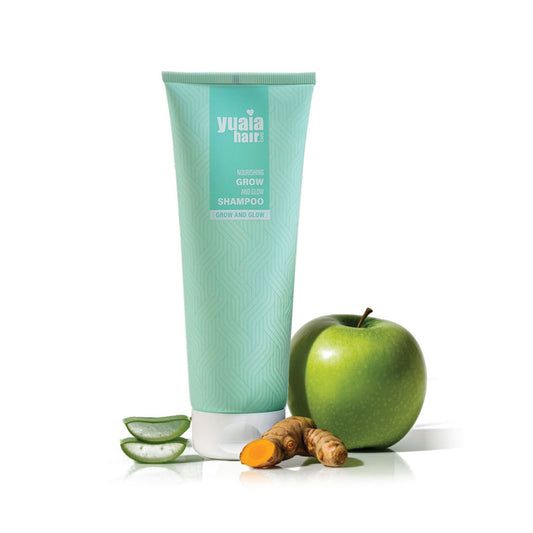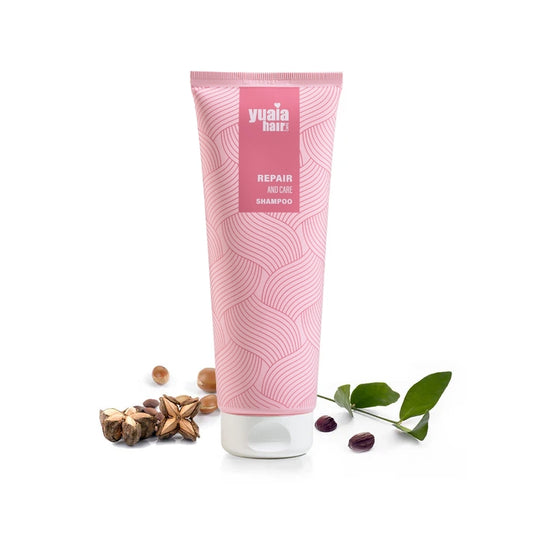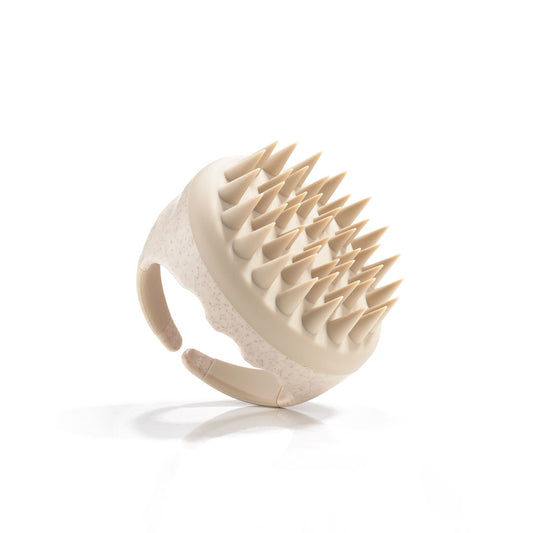
What are the symptoms of clogged hair follicles?
Recognizing the signs of clogged hair follicles on the scalp is essential for early intervention and maintaining scalp health. Common indicators include:
-
Pimple-like bumps: Small, red or white-headed bumps resembling pimples may appear on the scalp.
-
Redness and inflammation: The skin around affected hair follicles can become red and swollen, indicating irritation.
-
Itching or tenderness: Affected areas might feel itchy or tender to the touch, causing discomfort.
-
Hair loss or thinning: In more severe cases, clogged follicles can lead to temporary hair loss or noticeable thinning in the affected regions.
If you observe these symptoms, it's advisable to consult a healthcare professional for proper diagnosis and treatment.
What are the potential complications of clogged hair follicles?
While clogged hair follicles are often manageable, if left unaddressed, they can lead to certain complications that affect both scalp health and hair growth.
Scalp folliculitis: When hair follicles become inflamed due to buildup, they can develop into scalp folliculitis—a condition that causes red, itchy, and sometimes painful bumps. This inflammation can make the scalp feel tender and irritated, leading to discomfort.
Skin irritation: Persistent follicle blockage can contribute to ongoing skin irritation. Excess oil and dead skin cells trapped in follicles may cause an itchy, flaky scalp, making it difficult to maintain scalp balance and overall comfort.
Temporary hair loss: In some cases, clogged follicles may disrupt the hair growth cycle, resulting in temporary shedding or thinning in affected areas. Addressing the issue early can help minimize hair loss and promote regrowth.
Risk of secondary infections: Blocked follicles create an ideal environment for bacteria to thrive. If left untreated, this can lead to infections that may worsen inflammation and require medical intervention.
Scarring and permanent hair loss: Severe or prolonged inflammation can damage the hair follicle structure, leading to scarring. In extreme cases, this can result in permanent hair loss in affected areas.
Fortunately, these complications can often be prevented with proper scalp care and timely treatment. Regular cleansing, choosing non-comedogenic hair products, and addressing symptoms early can help maintain a healthy scalp and prevent long-term damage.
How to treat clogged hair follicles on the scalp
Addressing clogged hair follicles promptly is essential to restore scalp health and promote optimal hair growth. Treatment approaches can vary based on the severity and underlying causes of the blockage.
In the following sections, we will explore various methods, including at-home remedies, over-the-counter products, and professional treatments, to help you effectively manage and prevent clogged hair follicles.
Improving scalp hygiene
Maintaining proper scalp hygiene is essential for preventing clogged hair follicles and promoting overall hair health. A clean and well-balanced scalp environment reduces the risk of buildup, irritation, and inflammation.
Regular washing with appropriate shampoos: Washing your scalp regularly helps remove excess oil, dead skin cells, and product buildup that can clog follicles. Choosing a sulfate-free shampoo is especially beneficial, as it cleans effectively without stripping the scalp of its natural oils. Harsh sulfates can cause dryness and irritation, which may lead to overproduction of oil, further contributing to clogged follicles.
At Yuaia Haircare, we offer two sulfate-free shampoos: the Grow and Glow Shampoo, designed to stimulate hair growth and increase strand thickness, and the Repair and Care Shampoo, ideal for nourishing and strengthening dry or damaged hair.
Avoiding heavy or pore-clogging hair products: Certain gels, creams, and oils can leave residues that accumulate on the scalp, blocking hair follicles. Opting for lightweight, non-comedogenic hair products can help minimize buildup while still providing necessary hydration and styling benefits. Being mindful of product ingredients can go a long way in maintaining a clean, healthy scalp.
Natural ingredients
Incorporating natural ingredients into your hair care routine can effectively manage clogged hair follicles and promote a healthier scalp. These ingredients offer gentle, scalp-friendly solutions that help remove buildup, balance oil production, and support overall scalp health.
Tea tree oil: Known for its antibacterial and antifungal properties, tea tree oil is a powerful natural remedy for scalp concerns. It helps cleanse the scalp, reduce microbial buildup, and keep follicles clear. To use, add a few drops to your shampoo or dilute it with a carrier oil, such as coconut or jojoba oil, before applying it directly to the scalp. This can help prevent follicle blockages and maintain a balanced scalp environment.
Apple cider vinegar rinse: Apple cider vinegar is naturally acidic, making it effective in restoring the scalp’s pH and breaking down product buildup that can clog follicles. Mix equal parts of apple cider vinegar and water, apply the mixture to the scalp after shampooing, let it sit for a few minutes, then rinse thoroughly. This rinse can clarify the scalp, remove residue, and promote healthier hair growth.
Coconut oil: With its moisturizing and antimicrobial properties, coconut oil can penetrate deep into the scalp and hair shaft, reducing dryness and preventing buildup. To use, warm a small amount of coconut oil and massage it into the scalp. Leave it on for at least 30 minutes before washing it out with a gentle shampoo. Regular use can help maintain scalp hydration and support healthy hair growth while preventing clogged follicles.

Topical treatments
When regular scalp hygiene is not enough to clear clogged hair follicles, topical treatments can provide additional relief. These treatments target buildup, inflammation, and potential infections that may be contributing to the issue.
Medicated shampoos: Certain shampoos contain active ingredients like salicylic acid or ketoconazole, which help manage clogged follicles and scalp irritation. Salicylic acid works by gently exfoliating the scalp, dissolving dead skin cells, and preventing buildup that can block hair follicles. Ketoconazole, on the other hand, is an antifungal agent that helps treat scalp conditions linked to fungal overgrowth, such as dandruff or folliculitis.
Topical antibiotics or antifungals: If clogged follicles become infected, topical antibiotics or antifungal treatments may be necessary to clear bacterial or fungal infections. A healthcare professional can recommend the best treatment, whether over-the-counter or prescription-based, to help reduce inflammation and prevent further complications.
How to prevent clogged hair follicles
Maintaining healthy hair follicles is essential for optimal hair growth and scalp health. By adopting the right habits and using suitable hair care products, you can prevent buildup and keep your scalp in the best possible condition.
Maintain a balanced diet
What you eat plays a role in scalp and hair health. A diet rich in essential vitamins and minerals helps maintain normal hair. Key nutrients include:
-
Vitamin A – Found in carrots, sweet potatoes, and spinach.
-
Vitamin C and E – Found in citrus fruits, nuts, and seeds.
-
Vitamin D – Found in fatty fish, eggs, and fortified dairy products.
-
Zinc and iron – Found in red meat, legumes, and whole grains.
-
Omega-3 fatty acids – Found in fish, flaxseeds, and walnuts.
Eating a variety of nutrient-dense foods can help support overall scalp health.
Massage the scalp regularly
Scalp massages promote blood circulation, helping hair follicles function properly. Increased circulation can also help remove buildup and excess oil.
-
Use your fingertips to massage the scalp in circular motions for a few minutes daily.
-
A scalp massager or soft-bristle brush can enhance the effects.
-
Light oils like jojoba or argan oil can be used for extra nourishment.
Regular scalp massages may help prevent follicle blockage and support hair health over time.
Choose non-comedogenic hair products
Selecting hair care products that do not clog pores is essential for keeping follicles clear and preventing buildup. Shampoos and conditioners labeled as non-comedogenic or lightweight are ideal choices, as they are formulated to avoid blocking hair follicles. Avoid heavy styling creams, pomades, or thick oils, as these can leave residue on the scalp and contribute to clogging. Opting for silicone-free formulas can also help reduce product buildup and keep the scalp balanced. By choosing the right hair care products, you can support a healthier scalp environment and help maintain normal hair growth.
Avoid tight hairstyles
Wearing tight hairstyles regularly can put strain on hair follicles, which may lead to discomfort or even hair thinning over time. Styles such as tight ponytails, braids, buns, and cornrows can pull on the scalp and contribute to follicle stress. To reduce tension, opt for looser hairstyles that minimize pressure on the hair roots. Using soft hair ties or scrunchies instead of tight elastic bands can help prevent breakage and lessen scalp strain. Allowing the hair to rest by wearing it down more often can help maintain a healthier scalp and reduce unnecessary stress on the follicles.
When should you consult a professional for clogged hair follicles?
While many cases of clogged hair follicles can be managed with proper scalp care and hygiene, certain signs indicate the need for medical attention:
-
Persistent or worsening symptoms: If you notice that your symptoms are not improving or are actively worsening after a few days of self-care, it's advisable to see a doctor.
-
Severe pain or discomfort: Experiencing significant pain, tenderness, or discomfort in the affected areas may require professional evaluation.
-
Spreading infection: If you observe that the redness, swelling, or bumps are spreading beyond the initial area, it could indicate a progressing infection that needs medical intervention.
-
Fever or systemic symptoms: The presence of fever, chills, or a general feeling of unwellness alongside follicle issues may suggest a more serious infection requiring prompt medical attention.
-
Recurrent episodes: Experiencing frequent or recurring instances of clogged hair follicles or folliculitis warrants a consultation with a healthcare professional to determine underlying causes and appropriate treatment.
Seeking medical advice in these situations ensures timely and effective treatment, helping to prevent potential complications and promote optimal scalp health.
Healthy scalp, happy hair
Maintaining a healthy scalp is the key to strong, vibrant hair. By practicing good hygiene, using the right products, and paying attention to early signs of clogged hair follicles, you can prevent discomfort and support healthy hair growth. If symptoms persist or worsen, don’t hesitate to seek professional advice. Prioritizing scalp health today will help ensure healthier, fuller hair in the long run.
 2-4 day UK delivery
2-4 day UK delivery
 25.000+ satisfied customers
25.000+ satisfied customers
 Satisfaction Guarantee
Satisfaction Guarantee




























